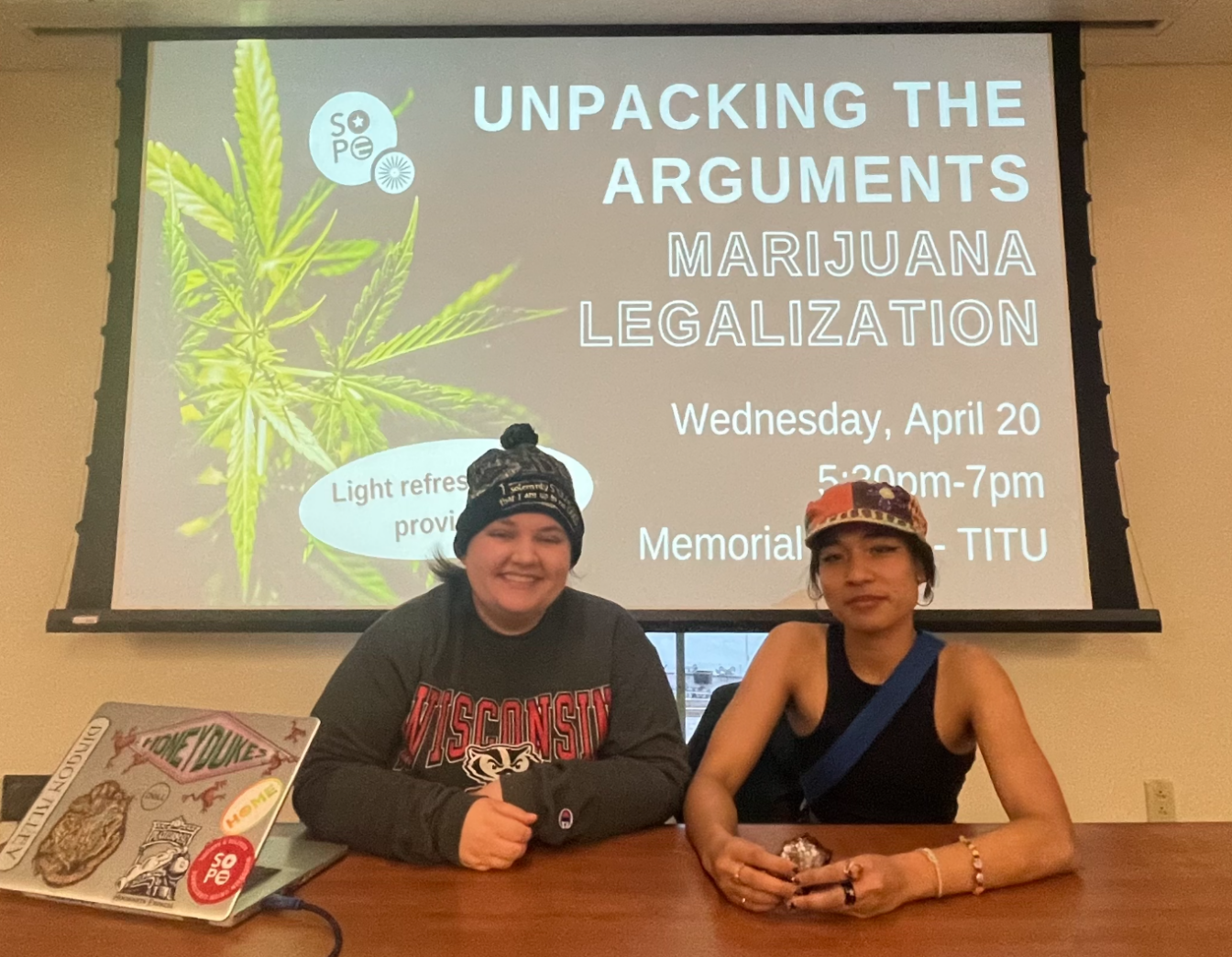The Wisconsin Union Directorate Committee for Society & Politics, also known as WUD SoPo, hosted “Unpacking the Arguments: Marijuana Legalization” at Memorial Union Wednesday, April 20 — colloquially known as World Weed Day.
This event included a detailed presentation by SoPo associate programming director Micah Orange, followed by an open discussion on the topic.
The topic was especially timely, Orange said, since the Marijuana Opportunity Reinvestment and Expungement Act, also known as the MORE Act, made it through the House of Representatives for the second time earlier this month. If passed, the MORE Act will decriminalize marijuana use and expunge the records of people charged with certain cannabis offenses.
Expungement for cannabis offenses sparked conversation during the discussion period of Wednesday’s event, with questions about how to systematically undo decades of social and economic impacts of incarceration for marijuana violations.
Some audience members questioned whether there was a precedent to give reparations to individuals incarcerated for marijuana violations, which date back to the reversal of the 1919 Prohibition Act.
In Orange’s opinion, she said individuals released from incarceration in theory may be able to acquire government support through housing, food assistance, job search assistance or healthcare. But additional infrastructure must be in place to support these programs and services before individuals are released from prison, Orange added to her thoughts.
One of the most prevalent arguments circulating today against the legalization of marijuana is the marijuana gateway hypothesis, also referred to as the MGH, which states those who try marijuana are more likely to eventually move onto more dangerous drugs, an article from National Organization for the Reform of Marijuana Laws, also known as NORML, said.
Most users of illicit drugs, however, first experimented with tobacco or alcohol and over 76% of opioid users decreased use after using medical marijuana, according to the NORML.
Given these findings, marijuana could more accurately be described as an “exit” drug, according to NORML.
“[Many of] the cons are based in part on the inherent risks of not regulating its production,” audience member Gregg Waterman said.
Other popular arguments against marijuana legalization include increased driver impairment, the emergence of “Big Marijuana” and unknown health effects, an article from Britannica said.
Much of the discussion period was spent speculating about the Senate’s actions on the MORE Act. The group discussed how the success of the vote could hinge vote on its timing, given the looming lame duck period approaching due to the upcoming November elections, which have the potential to flip the Senate majority and impact the act’s passage.
The act must first pass through senate committees. A decision will most likely be made after January 2023.
Editor’s Note: This article was updated at 3:20 p.m. on April 26, 2022 to reflect changes in statements attributed to Orange. The article was corrected to reflect that Orange was providing her own opinion and not that of UW-Madison or WUD regarding reparations for individuals released from prison. A statement about marijuana being an exit drug was wrongly attributed to Orange instead of NORML and context surrounding the discussion about the passage of the MORE Act was also clarified.



